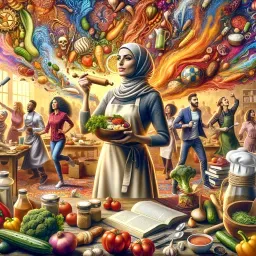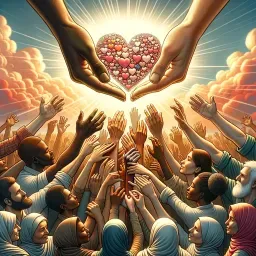You don’t need a cape to be a hero

0
0
0
0
- Meaning
- The phrase suggests that heroism lies in taking action and making a difference in everyday life, emphasizing that one does not need extraordinary abilities or appearances to positively impact others. Psychologically, it empowers individuals by reinforcing the belief that they can be agents of change.
- Allegory
- The allegorical image elements reflect the phrase by showcasing that heroism can manifest in various forms, highlighting diversity in action and the collective spirit of community. The vibrant colors symbolize positivity and hope, inspiring viewers to recognize their potential to make a difference in their daily lives.
- Applicability
- This phrase can be applied in personal life by encouraging individuals to engage in acts of kindness, support others in need, or stand up for causes they believe in without waiting for a grand opportunity or acknowledgment.
- Impact
- The impact of this phrase has been seen in various social movements that encourage selflessness and community service. It inspires individuals to take initiative and reinforces the idea that small acts of kindness can lead to significant changes in society.
- Historical Context
- The concept likely originated in the late 20th to early 21st centuries, during a time marked by societal movements emphasizing personal empowerment and the value of everyday contributions to community and society.
- Criticisms
- There could be criticisms around the idea that everyday actions can equate to heroism when discussing serious issues like systemic injustice or social inequality. Some may argue that more systemic changes, rather than individual actions, are necessary.
- Variations
- Variations of this phrase include interpretations from other cultures that emphasize virtues such as community service and altruism, which are often heralded as forms of heroism in various societies. For instance, in some Eastern cultures, the concept of a 'quiet hero' emphasizes humility and collective efforts over individual glory.
-

Anyone can cook, but only the fearless can be great.
-

We scare because we care.
-

The very things that hold you down are going to lift you up.
-

You never forget kids like Emily, or Andy, but they forget you.
-

The problem is not the problem. The problem is your attitude about the problem.
-

Only a life lived for others is a life worthwhile.
-

The only limit is your soul.
-

There are no accidents.
-

The sky’s awake, so I’m awake!
-

I’m trash!
No Comments